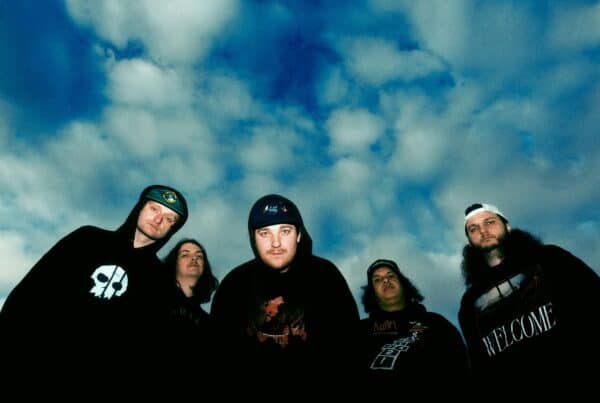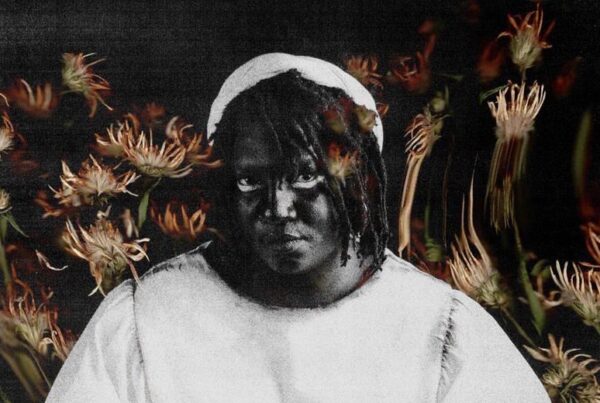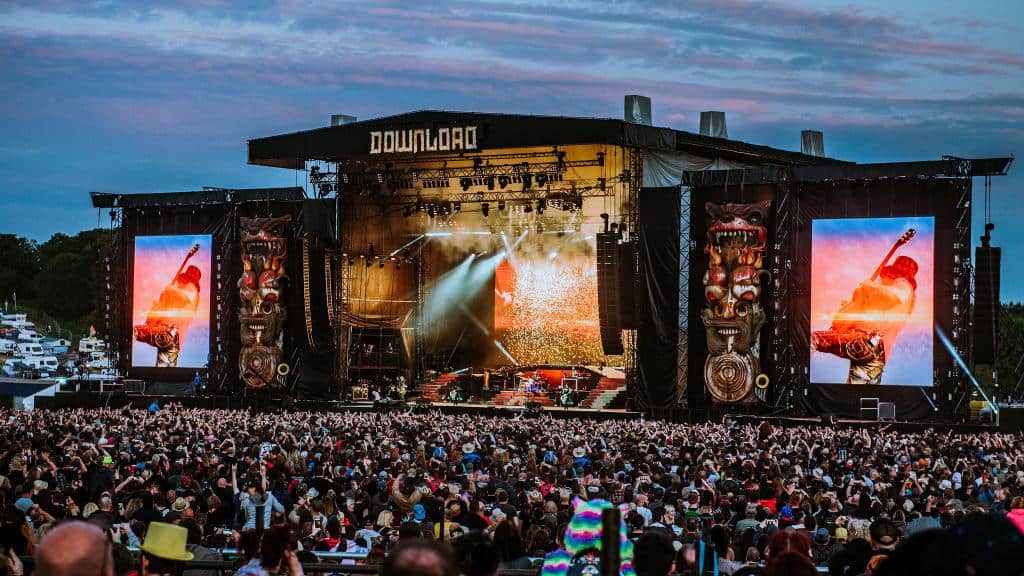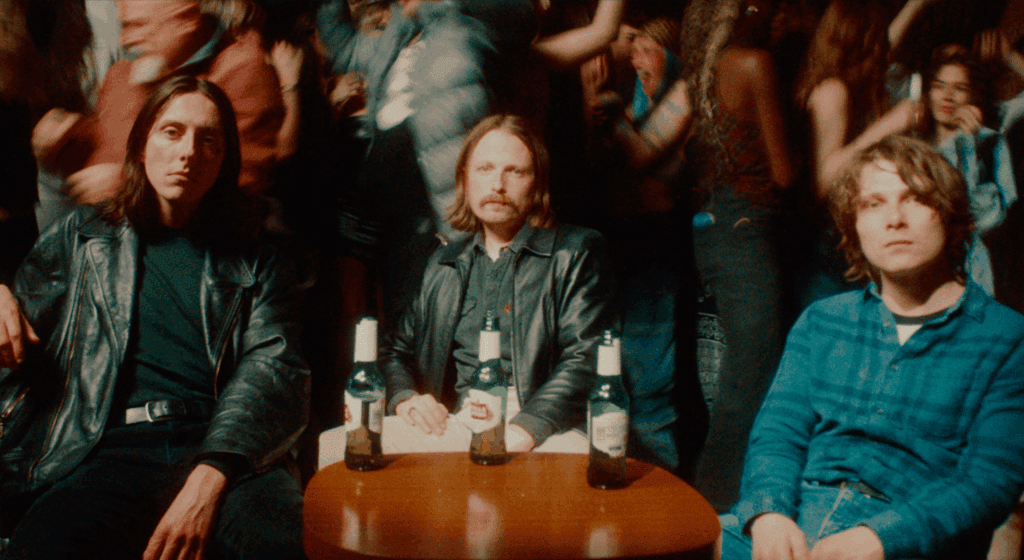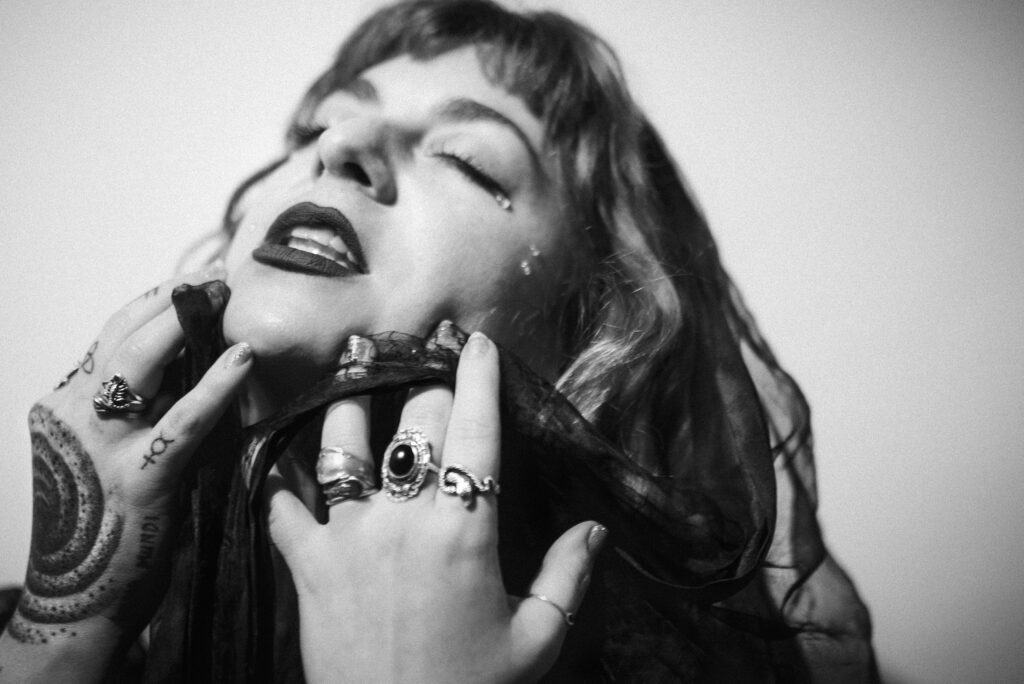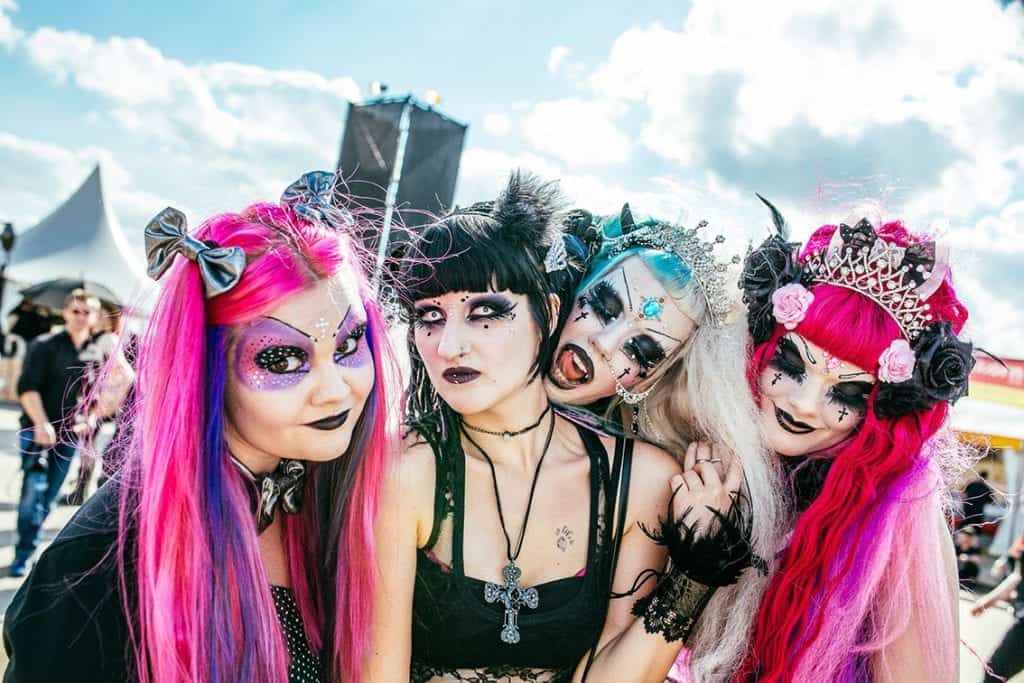
I would never really classify myself as an “alternative” person per se. Personally, I think that kind of boxing in personalities comes across as slightly reductive. That said, there are many people I’m sure who have found great comfort and a sense of identity in that belonging to a group. Perhaps my own viewpoint is due to a personal predisposition. Yeah, I was never really one for the pop charts or blockbuster films, but I never really felt at home in any specific subculture or community: I didn’t really fit in with the ravers, the goths, the emos, never really felt at home in a Slipknot crowd, nor a Dave Gorman comedy audience really, and so on and so on.
So rather than calling myself “alternative” as such, the best I could give myself is that I existed in some kind of nebulous grey area, and as much as it makes me sound like a pretentious wanker, I’m alright with that. As a great man once said: I don’t want to belong to the hip-hop people. I don’t want to belong to the glam people. I don’t want to belong to the TV people. I don’t want to belong to the alternative people. I just want to be.”
In that same vein, the friends and people I associated with felt very similar: not quite nerdy enough to be nerds, not in the “it” crowd, yet perhaps too sharp-edged, acerbic, or maybe just slightly odd in some cases to really fit into any “group” themselves, which I mean in the best way. They were a great mix of often completely opposite personalities. The key was, they were all truly individual characters, and I gravitated towards that. What’s the relevance of all this anyway? Well, recently I sat down to watch the excellent documentary on all-girl reggae-punk band The Slits, ‘Here to be Heard’, and this exact same sentiment came flooding back.
In a scene filled with safety pinned, spiky haired, lanky lads with ripped trousers, The Slits were a breath of fresh air. Rebellious and D.I.Y still, absolutely, but there was so much more diversity going on, musically, visually and everything in between: more colour, more humour, more range, more personality. They were the individuals amongst a sea of Pistols and Clash imitators, and for that, huge respect is given.
Then it hit me: to me, the word “alternative” could only really mean something at its face value, as in to be something completely, radically different to the widely adopted trends. Through that definition, other bands like The Fall, The Stooges and The Residents immediately spring to my mind, among a litany of others. Essentially, music that you can’t easily just put in a box like you can others.
Granted, my net for this is quite broad, but I think surely that’s the point? Even bands like The Prodigy, who have enjoyed a decent amount of success throughout their long career, I could argue to still remain in that bracket, having not quite been adopted as a beacon of counterculture in the same way as others, but I digress.
Now though, it appears to me that being “alternative” is seemingly the in thing. A huge number of brands like Damaged Society, Killstar and Attitude Clothing offer consumers the idea of the “alternative” look, characterised by ripped black trousers, metal band t-shirts, leather trench coats and dyed hair. Indeed, the ubiquity of this kind of dark, “gothicised” image of alternative culture arguably hit a fever pitch recently with the rise of stars like Billie Eilish, thrusting those dark, moody, horror inspired aesthetics into the mainstream at full force.
The one thing I will give Billie credit for though is her continued effort to evolve her image, which she seems to find much more preferable than being stuck in the same box her whole career, and who could blame her?
At the end of the day, it all comes back to that word: ubiquity. Surely having an idea of alternative culture that feels so definable and uniform defeats its whole purpose? This is something that even pivotal figures in the punk movement picked up on. As Sex Pistols and PiL frontman John Lydon said in an interview: “when I left the Sex Pistols and formed PiL, row 1 to 30 would be Johnny Rotten imitators. I thought, ‘This is going horribly wrong.’ It became a caricature. Punk wanted to maintain the cliche and the uniformity, and I wanted to do new and different things, which is, to my mind, what punk is all about: Do it yourself, which means be true to yourself.”
Put simply, if goths all want to be different, but all still dress “like goths”, have they accomplished or failed? I admit you won’t see every Tom, Dick and Harry walking down the road looking like Cradle of Filth rejects, but I think you get my point.
So that then begs the most fundamental question of them all in this argument: if the idea of “alternative culture” as we know it today is so set in stone, is there any real meaning behind it anymore? Or has it just effectively become a kind of inkhorn phrase, signalling a vague collection of ideas that are much more homogeneous and corporatised than was ever intended in the first place? Well, the beauty of a word like that, is that it can mean loads of different things to loads of different people, and so surely to reach any kind of answer, you’d have to ask a load of different people? Well, funnily enough, that’s exactly what I did, and this is what they said.
Harris, Music Fan
Alternative to me, is anything not deemed in a social norm: the underdog’s music. To me it represents the following of those who may have grown up in different situations, something the overlooked, everyday person could relate to, like Green Day. The difference is now you’ve just got pink-haired schmucks like Yungblud. It’s more of an “open-minded approach” instead of the OG bands. If you put a new alternative band in front of me now I wouldn’t listen.
Melissa, Musician
I only just realised recently that a lot of the clothes I like are labelled “alternative.” It was never really used to describe what it means now. Styles were “rock chick” or “gothic” or “punk.” Alternative styles now brand all that into one. To me, it means not following modern fashion, whatever that might be. Some of it is way too out there for me, but compared to the street shops, it’s preferable! I’m not sure whether it’s been cheapened, but it’s far too general of a term. Steampunk, rock apparel, punk, goth, emo, all seem to be bunged together under the same umbrella, although the styles are quite different.
Jack, Music Fan
To me, alternative is a style in fashion or music that is unique and different from the norm. People in different alternative music subcultures would have their own way of dressing, this way you could tell which group they were a part of whether it be Punk, Goth, Metalhead etc. It represents a way of being expressive and outside of the box, showing your interests through your clothing and music taste.
It used to be quite an exclusive thing where each subculture had their own special way of identifying people, now it is just a label for anyone who dyes their hair, wears black and has tattoos. It has nothing to do with music anymore. When you see someone who is “alternative” there is no unique identifier to know what group or culture they are a part of. It’s become quite generic and watered down because of social media apps like TikTok, where people see an alternative person and copy them because they think it looks cool without actually being a part of the culture.
Freya, Journalist
For me, It’s all about expressing yourself freely and breaking away from the constraints of fitting into a specific box. Being part of a community where you can genuinely be yourself and shine in a unique way is truly fulfilling. The blend of my diverse interests and distinct perspective adds to my individuality, creating a complete representation of who I am ,which I value a lot. The term “alternative” indeed carries a sense of being unconventional or divergent from the mainstream. Its evolution over time may have led to it becoming more mainstream or commercialised, potentially affecting its authenticity for some individuals. How this is perceived, whether positively or negatively, varies depending on personal viewpoints.
Some see it as a positive move towards inclusivity and diversity, while others may feel it dilutes the original essence. However, I think it’s remarkable how the acceptance of being alternative has shifted over time. While some experienced bullying in the past for being different, it’s fantastic to witness the acceptance and admiration for those who embrace their uniqueness. They’re signs of a positive change where being true to oneself is not just acknowledged but celebrated.
Stu, Musician
I think what it represents to me now is a whole lot of different sub-genres and nothing really specific, but definitely a suggestion that it’s NOT pop music. It definitely represents music that has a “scene” with it. So it’s about more than just the music. It’s about the community, a safe crowd where you know at gigs you’re among genuine fans, not just people that know a big single from the radio. I think back in the day it was meant as metal/grunge/rock. I think now it crosses all genres, or most. I may have been wrong all these years but I’ve always seen it as “an *alternative* to the normal”, so by normal I mean popular/chart music.
It’s less powerful now, it’s been diluted to encompass more and more, maybe a bit lazy to use just whenever the right genre can be applied. I don’t think it’s really a good or bad thing. I think the good thing now is that genres don’t seem as important and also many artists like to flirt with different styles. That said, I think the music I make I’d class as alternative, and by that I mean I know my audience are real music lovers. I mean people like me, who would listen to anything and everything, not genre specific.
Matt, Writer
Granted, I’ve not much idea about what being alternative was like before now, but what I have noticed is that being alternative is now a very mainstream thing and has been kinda cheapened I think. So being alt is just a really marketable aesthetic basically. It kind of doesn’t mean much anymore because being alternative doesn’t really feel alternative because it’s so mainstream.
Patrick, Music Fan
Alternative means to me, attractive women, sometimes even men. It represents good music and even better people. I personally don’t think there’s ever been a noticeable difference in how it’s used, or in what it represents, but perhaps the likes of TikTok and other social media sites may have “cheapened” the meaning. Personally, I’m quite stubborn and oppose most changes, however, as with everything, music will change too, and as it does, so too will the meaning. It’s only natural.
So there you go. To some, alternative culture maintains its status as a common ground for freedom of expression against the homogenised mainstream, allowing for a wealth of individual viewpoints and perspectives. To others, the word and the scene itself have become homogenised, its true significance being diluted and bastardised in the wake of social media. Or maybe it’s seen by some as a colloquial shorthand for hot people, which I mean, fair enough, whatever floats your boat I suppose. What I do know though is that alternative culture, in whatever guise it may take, isn’t going anywhere, and will be here for a long time to come.
Patrick did cease upon an interesting point: as with everything, music will change too, and as it does, so too will the meaning”, and I think he’s right. So, I don’t think it is, as I may have posed earlier, a uniform. It may not be the same culture I, or many people grew up with, but if it’s still managing to give new generations a sense of freedom, release, and communal rebellion, then I don’t think we really need to worry ourselves. It seems to be motoring along just fine.

